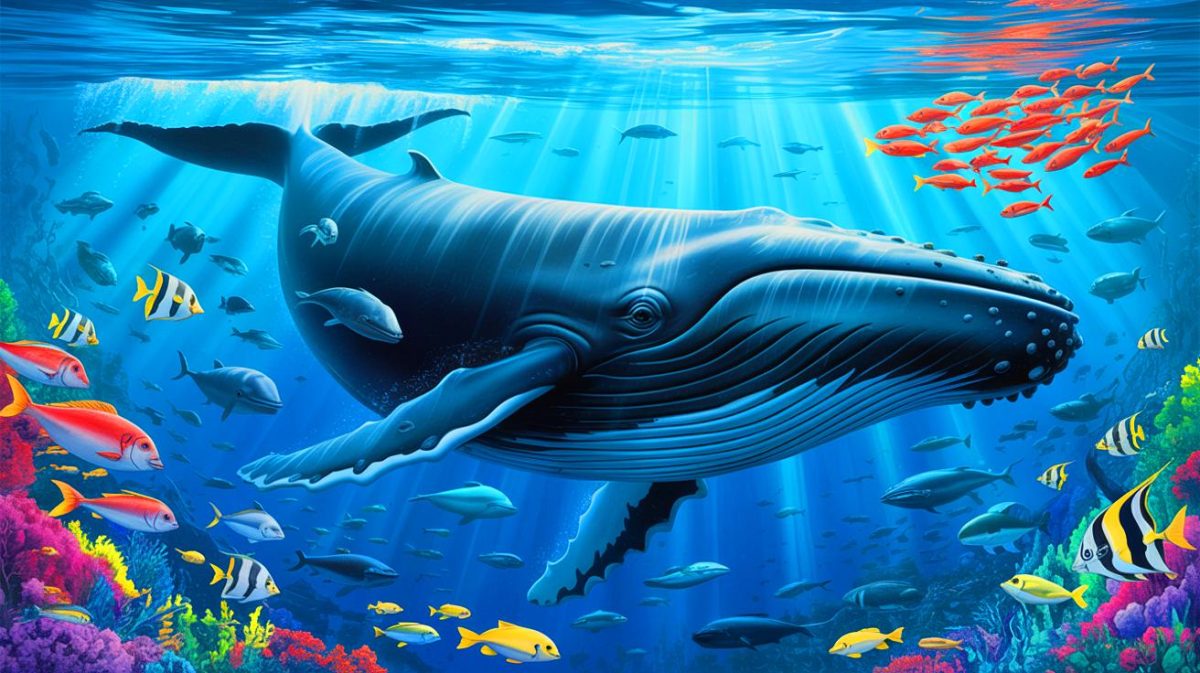On this February 19th, International Whale Day, we are reminded of the urgent need to protect these ocean giants—true allies in the fight against global warming.
Every year on February 19th, we celebrate one of the most majestic yet threatened creatures on our planet: the whale. These giants of the oceans are not only fascinating for their size but play a crucial role in the marine ecosystem. Their ecological impact extends far beyond the waters they traverse, directly influencing the carbon cycle. In an era of climate change, it is vital to understand and protect these extraordinary animals—true partners in the battle for a stable climate.
Whales: Guardians of the Climate
Whales play an essential role in climate regulation thanks to their ability to influence the carbon cycle. These marine mammals store large amounts of carbon due to their size and feeding habits. By consuming vast quantities of prey, they capture carbon which remains stored in their bodies. This unique capacity makes whales living carbon sinks, helping to mitigate the effects of global warming.
Moreover, whale feces are rich in nutrients that stimulate the growth of phytoplankton, which plays a crucial role in absorbing carbon dioxide. This process, often called the “biological pump,” is vital for ocean health and global climate regulation. Protecting whale populations is therefore essential to maintaining this fragile ecological balance.
A Carbon Cycle Disrupted by Human Activity
Despite their importance, whales have suffered from intensive hunting, drastically reducing their populations and disrupting the oceanic carbon cycle. In the 20th century alone, nearly 2.9 million whales were hunted, leading to the disappearance of many species. This hunting released approximately 17 million tonnes of carbon into the atmosphere, exacerbating climate change.
Marine pollution—from heavy metals, hydrocarbons, and pesticides—also poses a serious threat to these marine mammals. These chemicals cause endocrine disruption, affecting whale reproduction and survival. Reducing such pollution is urgent to protect marine ecosystems.
Protection and Recovery of Whale Populations
To reverse decades of hunting and pollution damage, it is crucial to implement strict protection measures. The International Whaling Commission has banned commercial whaling, but some countries continue under the guise of scientific research. Concerted international efforts are necessary to ensure strict enforcement of these bans.
Initiatives to restore whale populations are key to rebuilding ocean carbon sinks. This involves protecting whales from direct threats and preserving their natural habitats. Reducing maritime traffic and limiting underwater noise pollution can help create safer environments for these giants of the sea.
An Uncertain Future for Our Ocean Allies
Whales face an uncertain future despite protection efforts. The impacts of climate change combined with ongoing human threats pose major survival challenges. Yet their role in regulating climate and ocean health cannot be underestimated. It is our responsibility to safeguard them for the sake of future generations.
As we celebrate International Whale Day, we must reflect on the vital importance of these creatures for our planet.
Source: le gaz.fr


